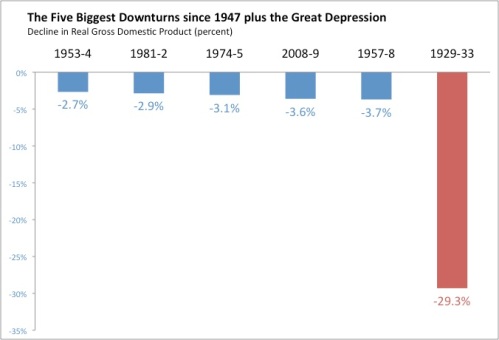Fire of LibertyAbout a week or so ago, President Obama came before the American people and noted that he was closing the "tax loophole," on the various American corporations that have factories our operations in foreign countries. Now a lot of people in this country might think that this is action is good news because the government is going after "tax dodging corporations," but when you remove the ribbon and wrapping paper from this gift you soon realize that the present is mere socks and underwear. Now while I'm don't claim to be an economist, I do know that this move on behalf of the Obama administration will create far more trouble for this nation and our economy for a paltry some of tax dollars. Luckily, we've got the columns of Robert Samuelson to set the record straight on the economic impact that such an action will bring about. Samuelson lays out a "user friendly" observation on what will occur in his most recent column "
The Great Tax Dodge Demystified." Here's what caught my eye:
Myth: Aided by those overpaid lobbyists, American multinationals are taxed lightly -- less so than their foreign counterparts.
Reality: Just the opposite. Most countries don't tax the foreign profits of their multinational firms at all. Take a Swiss multinational with operations in South Korea. It pays a 27.5 percent Korean corporate tax on its profits and can bring home the rest tax-free. By contrast, a U.S. firm in Korea pays the Korean tax and, if it returns the profits to the United States, faces the 35 percent U.S. corporate tax rate. American companies can defer the U.S. tax by keeping the profits abroad (naturally, many do), and when repatriated, companies get a credit for foreign taxes paid. In this case, they'd pay the difference between the Korean rate (27.5 percent) and the U.S. rate (35 percent).
Myth: When U.S. multinationals invest abroad, they destroy American jobs.
Reality: Not so. Sure, many U.S. firms have shut American factories and opened plants elsewhere. But most overseas investments by U.S. multinationals serve local markets. Only 10 percent of their foreign output is exported back to the United States, says Harvard economist Fritz Foley. When Wal-Mart opens a store in China, it doesn't close one in California. On balance, all the extra foreign sales create U.S. jobs for management, research and development (almost 90 percent of American multinationals' R&D occurs in the United States) and the export of components. A study by Foley and economists Mihir Desai of Harvard and James Hines of the University of Michigan estimates that for every 10 percent increase in U.S. multinationals' overseas payrolls, their American payrolls increase almost 4 percent.
Myth: Plugging overseas corporate tax loopholes will dramatically improve the budget outlook as multinationals pay their "fair" share.
Reality: Dream on. The estimated $210 billion revenue gain over 10 years -- money already included in Obama's budget -- represents only six-tenths of 1 percent of the decade's tax revenues of $32 trillion, as projected by the Congressional Budget Office. Worse, the CBO reckons that Obama's endless deficits over the decade will total a gut-wrenching $9.3 trillion.
Now is the time to reform our corporate taxes to a system of lower rates and more economic freedom to place us at a comparative advantage and attract more multi-national corporations to base their operations here. Unfortunately, the Obama administration is willing to destroy the economic recovery and put American multi-national corporations at an economic disadvantage with the other multi-nationals around the world to get some huzzahs and greater taxes.



